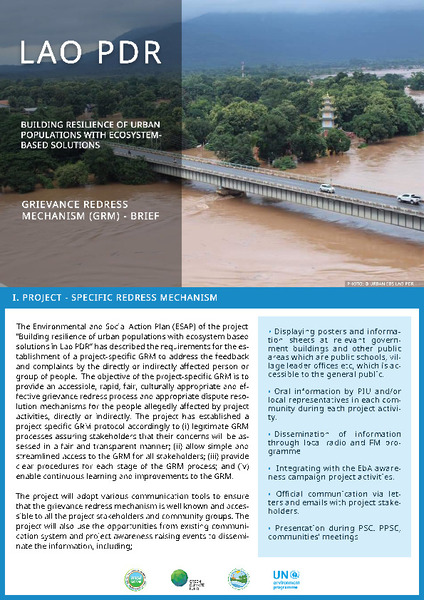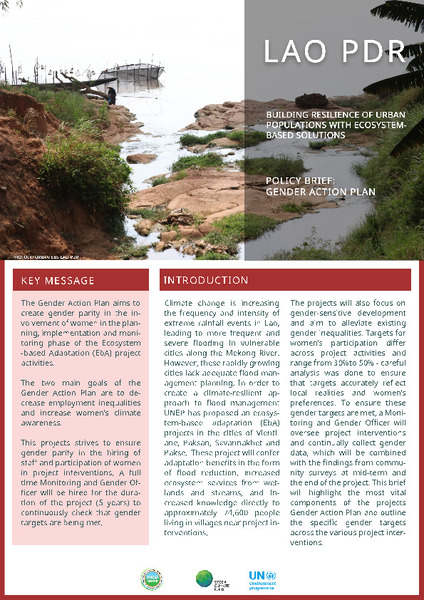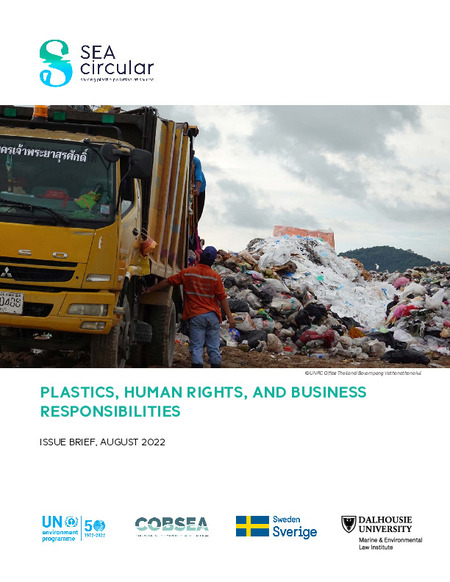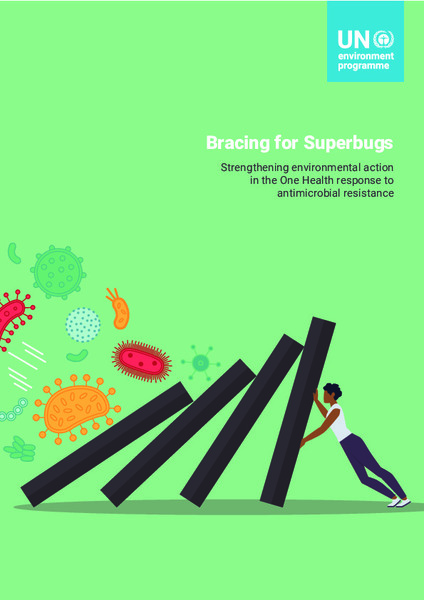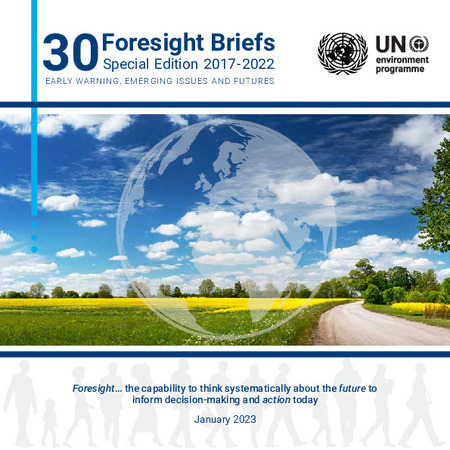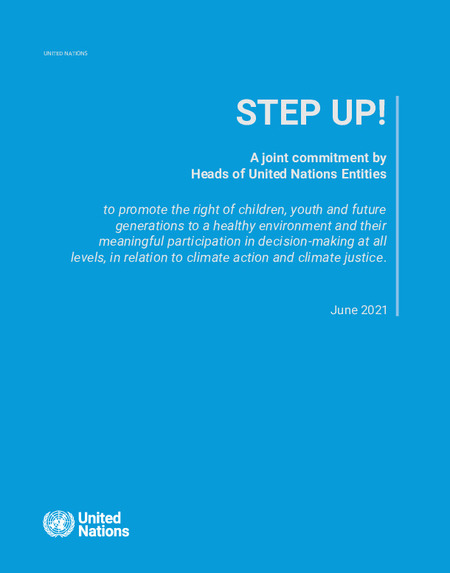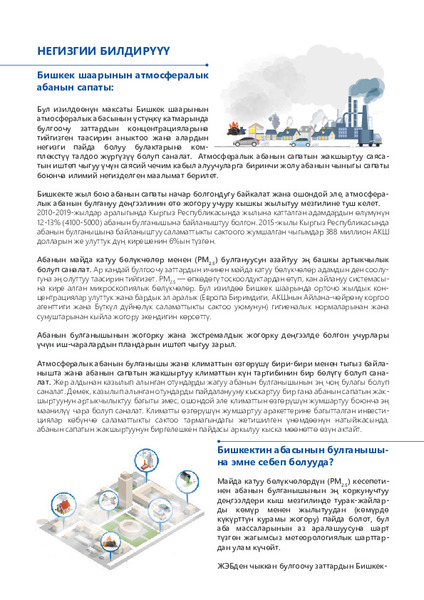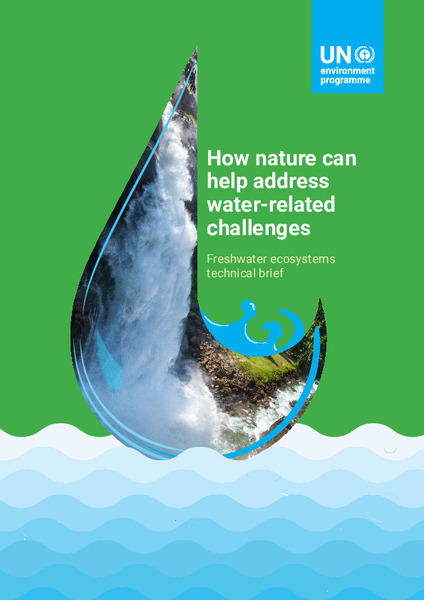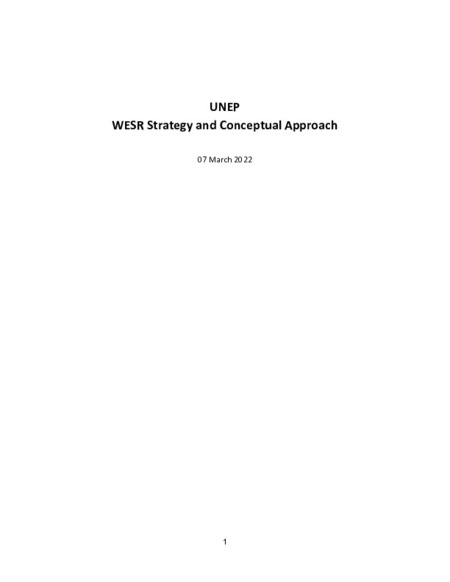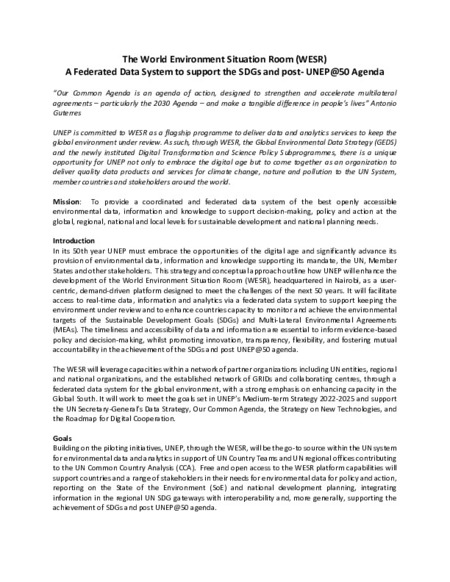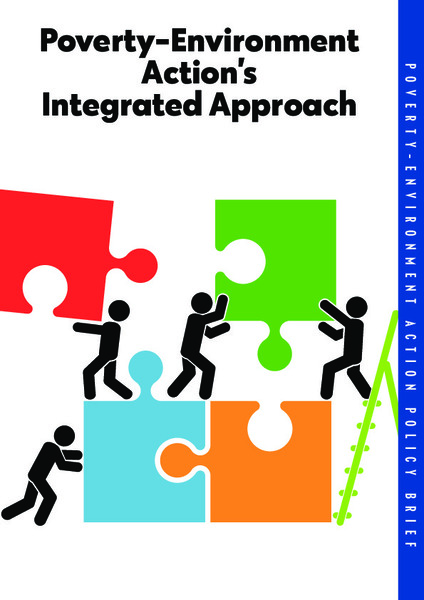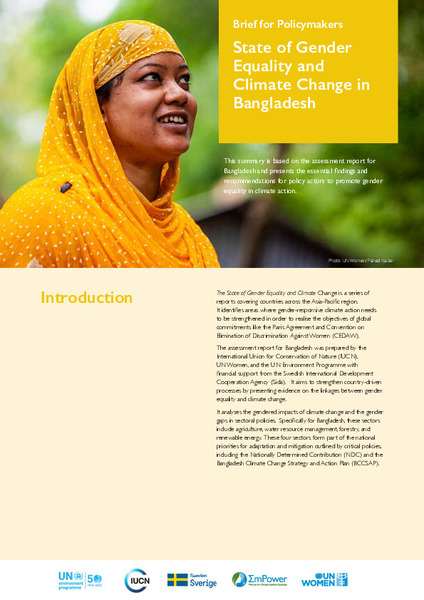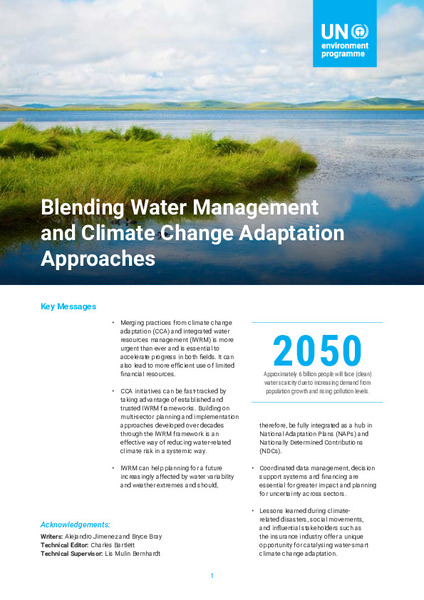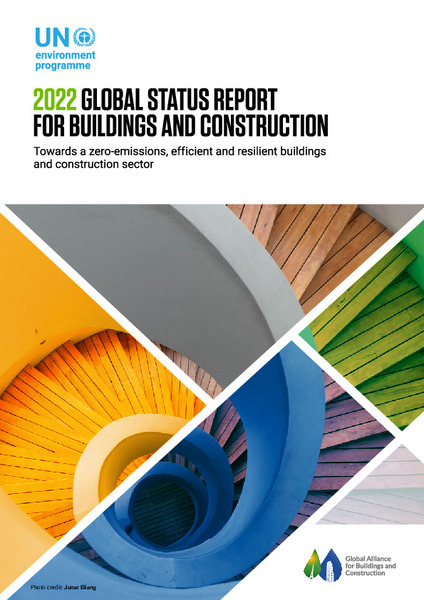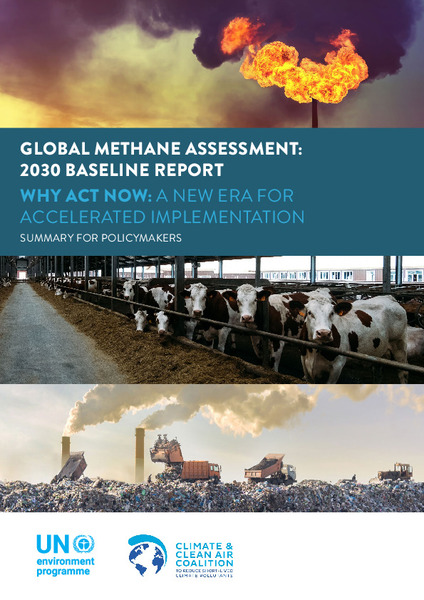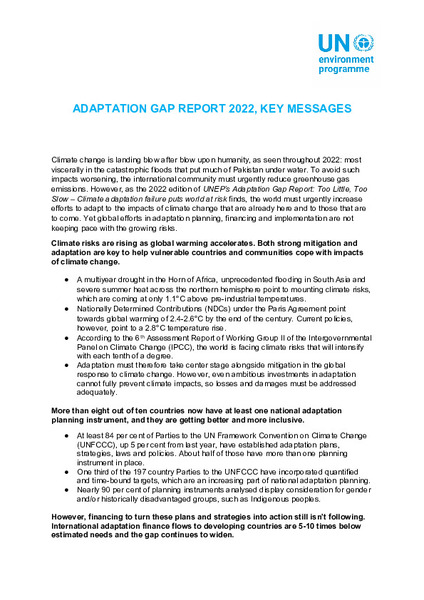Briefs, Summaries, Policies and Strategies: Recent submissions
Now showing items 101-120 of 624
-
Lao PDR - Building Resilience of Urban Populations with Ecosystem-based Solutions: Grievance Redress Mechanism (GRM) - Brief
(2023-02)The Environmental and Social Action Plan (ESAP) of the project “Building resilience of urban populations with ecosystem based solutions in Lao PDR” has described the requirements for the establishment of a project-specific ... -
Lao PDR: Building Resilience of Urban Populations with Ecosystem-based Solutions - Policy Brief: Gender Action Plan
(2023-02)The Gender Action Plan aims to create gender parity in the involvement of women in the planning, implementation and monitoring phase of the Ecosystem-based Adaptation (EbA) project activities. The two main goals of the ... -
Plastics, Human Rights, and Business Responsibilities - Issue Brief August 2022
(2022-08)A human rights-based approach informed by international human rights law to prevent and manage plastic pollution at each stage of the plastics lifecycle can build the capacity of those with the power to act responsibly in ... -
Executive Summary - Bracing for Superbugs: Strengthening environmental Action in the One Health Response to Antimicrobial Resistance
(2023-02)Global attention to AMR has mainly focused on human health and agriculture sectors, but there is growing evidence that the environment plays a key role in the development, transmission and spread of AMR. The environmental ... -
30 Foresight Briefs: Early Warning, Emerging Issues and Futures - Special Edition 2017-2022
(2023-01)Foresight is a powerful tool for leveraging Humanity´s ability to think about and build the Future. It provides a way to think about possible, alternative and desired futures. By doing so, it enables individuals, organisations ... -
Replication Strategy - GEF/UNEP Project “Integrated Stockholm Convention Toolkit to Improve the Transmission of Information under Articles 7 and 15”
(2022-10)The project’s overall objective is to facilitate the development, transmission, access and use of data contained in National Implementation Plans (Article 7) and National Reports (Article 15). Eight demonstration countries ... -
STEP UP! A Joint Commitment by Heads of United Nations Entities to Promote the Right of Children, Youth and Future Generations to a Healthy Environment and their Meaningful Participation in Decision-making at all Levels, in Relation to Climate Action and Climate Justice
(2021-06)UNEP in collaboration with relevant UN entities under the Secretary-General’s Call to Action for Human Rights has developed the Joint Commitment by Heads of United Nations Entities. It demonstrates UN entities’ commitment ... -
Air Quality in Bishkek – Assessment of Emission Sources and Road Map for Supporting Air Quality Management: Key Messages
(2022-10)This study is the first comprehensive analysis of key emission sources and their impact on ground-level air pollution concentrations in Bishkek, thus providing decision-makers for the first time with scientific evidence ... -
WESR Strategy and Conceptual Approach
(2022-03)This strategy and conceptual approach outline how UNEP will enhance the development of the World Environment Situation Room (WESR), headquartered in Nairobi, as a user-centric, demand-driven platform designed to meet the ... -
The World Environment Situation Room (WESR): A Federated Data System to support the SDGs and post- UNEP@50 Agenda
(2022-12)This strategy and conceptual approach outline how UNEP will enhance the development of the World Environment Situation Room (WESR), headquartered in Nairobi, as a usercentric, demand-driven platform designed to meet the ... -
Poverty-Environment Action's Integrated Approach - Poverty-Environment Action Policy Brief
(United Nations Environment Programme, 2022-08)This policy brief highlights key lessons from Poverty-Environment Initiative/Poverty-Environment Action experience, notably on: * The constraints imposed by fragmented and outdated institutional structures and information ... -
Plastics, Human Rights, and Business Responsibilities - An Issue Brief
(2022-08)A human rights-based approach informed by international human rights law to prevent and manage plastic pollution at each stage of the plastics lifecycle can build the capacity of those with the power to act responsibly in ... -
State of Gender Equality and Climate Change in Bangladesh - Brief for Policy Makers
(2022-03)This summary is based on the assessment report for Bangladesh and presents the essential findings and recommendations for policy actors to promote gender equality in climate action. -
Integrated Assessment of Air Pollution and Climate Change for Sustainable Development in Africa - Summary for Decision Makers
(2022-11)The Integrated Assessment of Air Pollution and Climate Change for Sustainable Development in Africa is the result of a scientifically underpinned process aimed at catalyzing and supporting transformative development in ... -
Blending Water Management and Climate Change Adaptation Approaches
(2022-11)Blending Integrated Water Resources Management (IWRM) and Climate Change Adaptation (CCA) is one key vehicle to facilitate taking real action to reduce climate impacts on water and avoid the worst of potential consequences ... -
Executive Summary - 2022 Global Status Report for Buildings and Construction: Towards a Zero‑emission, Efficient and Resilient Buildings and Construction Sector
(2022-11)Decarbonizing the buildings sector by 2050 is critical to delivering these emission cuts – and to addressing the wider triple planetary crisis of climate change, nature and biodiversity loss, and pollution and waste. ... -
Key Messages - Adaptation Gap Report 2022
(2022-11)1. Climate risks are rising as global warming accelerates. Both strong mitigation and adaptation are key to help vulnerable countries and communities cope with impacts of climate change; 2. More than eight out of ten ... -
Sustainable Fashion: Communication Strategy 2021 - 2024
(2022-10)The fashion industry is one of the largest contributors to the climate and ecological crisis. It is nature intensive, reliant on fossil fuels, polluting throughout its value chain and wasteful to the extreme. It is also ...


